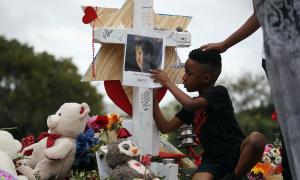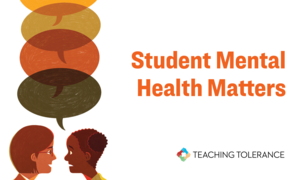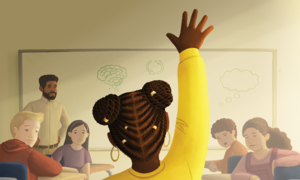Committing With Renewed Energy to a Safe and Just Society
The latest violent attack—this time at Robb Elementary School in Uvalde, Texas, in which 19 children and 2 adults were murdered—adds to the alarming incidents of violence that we’ve witnessed in our nation.

We Are Once Again Reeling From Grief and Outrage

To Counter Racist Violence, Teach Honest History

Gun Violence in Schools
Racist Violence Is Why We Need to Know Hard History
It’s imperative to clarify the context within which the massacre in Buffalo, New York, took place. Understanding the long history of anti-Black violence in the United States can help us connect the past to the present and find a different way forward. These LFJ resources can help.

To Counter Racist Violence, Teach Honest History
Premeditation and Resilience: Tulsa, Red Summer and the Great Migration

Mental Health Awareness Is a Community Concern
As we confront the ongoing assaults on education and individual rights—including anti-CRT and anti-LGBTQ laws, book bans, and the threat to reproductive rights—we recognize that these issues have compounded the stress at the end of the academic year. These resources provide strategies for educators, caregivers and community members to support the mental health and well-being of our nation’s youth.

The End-of-Year Mental Health Check

Student Mental Health Matters

Demystifying the Mind
Uplifting Accurate and Inclusive Education
In the latest issue of Learning for Justice magazine, a Black Alabama teenager recounts the damage an education that is neither accurate nor inclusive has caused in her life.

It Has Stayed With Me

Black Minds Matter

Ask, Investigate and Advocate
Ketanji Brown Jackson Confirmation: A Moment of Historic Proportions
While celebrating Ketanji Brown Jackson’s confirmation to the U.S. Supreme Court, it’s critical that we go beyond a “famous first” to dig deeper. These resources explore lessons that this historic moment has provided, including equity, representation, intersectionality and inclusion.

A Supremely Historic Moment

Partnering With Families to Support Black Girls
